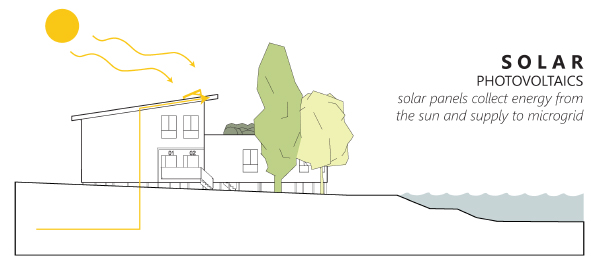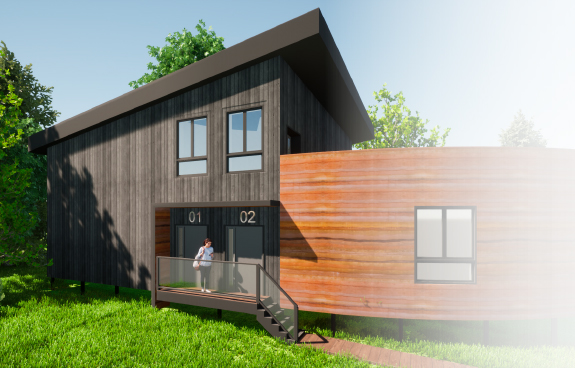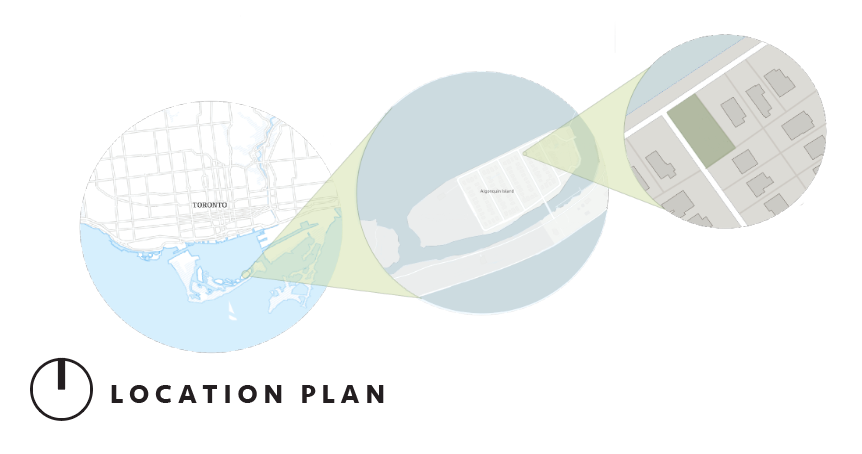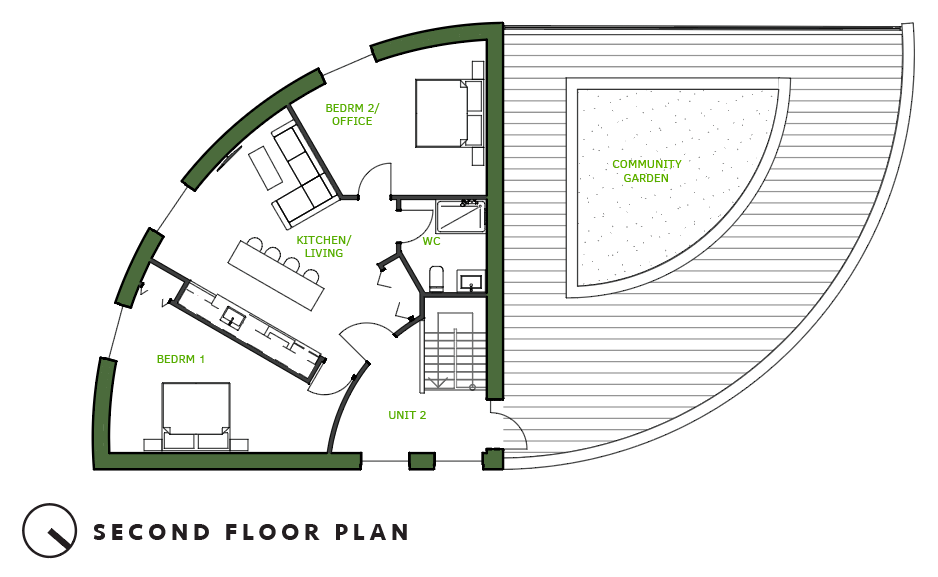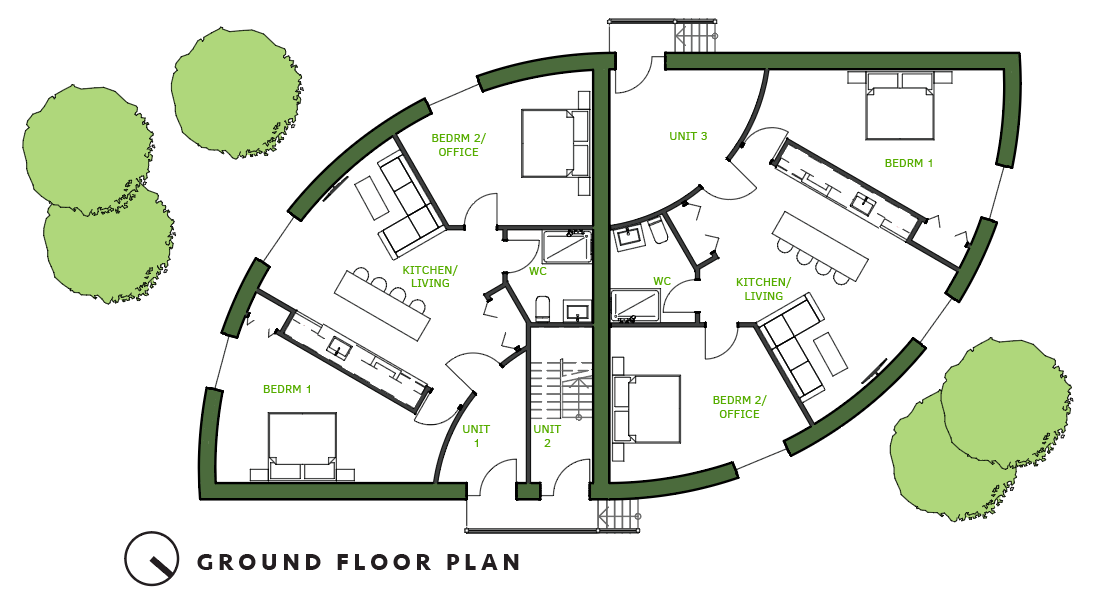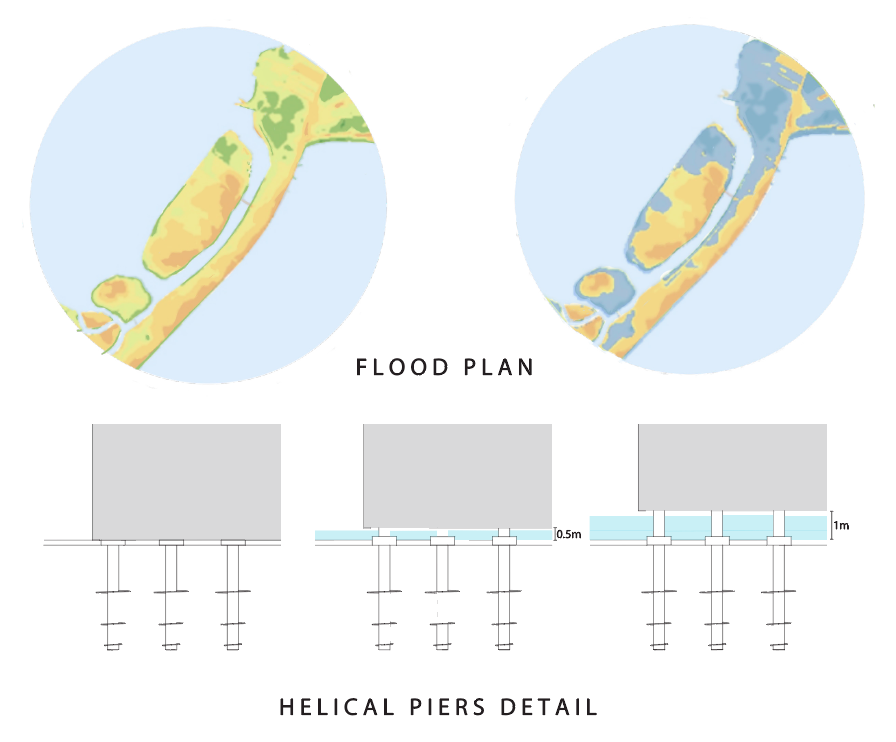Kim-Marie Degenkolb, Reja Hayat, Moira Mosho, Alexandra Winslow
Carbon Positive Affordable Housing:
the SEED
Rising temperatures have led to a rise in water levels which is a constant threat to waterfront properties. The modular SEED-series aims to restore a safe and stable climate, carbon positivity, and affordability through passive and active strategies. The prototype is located on the Toronto Island and is designed for students as well as low-income families. Modules are prefabricated off-site which increases cost and assembly efficiency. A helical pier foundation reduces concrete use and the carbon footprint, while also increasing construction efficiency. The SEED-modules are replicable and can be combined horizontally or stacked vertically to create combined units with communal spaces. The unique form of a singular unit was chosen as it reduces corners, the main contributor to heat loss through the building envelope. During the night, the south-facing rammed earth wall will release solar heat absorbed during the day, reducing the overall energy consumption. South- facing glazing allows for solar heat gain in winter, while shading provided by the roof overhang will reduce solar heat gain during summer. The building leverages water, wind, and sun to generate energy. Any surplus will improve the resiliency of the remote island community in the event of flooding through a micro-smart grid.
Carbon Positive Affordable Housing:
the SEED
Rising temperatures have led to a rise in water levels which is a constant threat to waterfront properties. The modular SEED-series aims to restore a safe and stable climate, carbon positivity, and affordability through passive and active strategies. The prototype is located on the Toronto Island and is designed for students as well as low-income families. Modules are prefabricated off-site which increases cost and assembly efficiency. A helical pier foundation reduces concrete use and the carbon footprint, while also increasing construction efficiency. The SEED-modules are replicable and can be combined horizontally or stacked vertically to create combined units with communal spaces. The unique form of a singular unit was chosen as it reduces corners, the main contributor to heat loss through the building envelope. During the night, the south-facing rammed earth wall will release solar heat absorbed during the day, reducing the overall energy consumption. South- facing glazing allows for solar heat gain in winter, while shading provided by the roof overhang will reduce solar heat gain during summer. The building leverages water, wind, and sun to generate energy. Any surplus will improve the resiliency of the remote island community in the event of flooding through a micro-smart grid.



